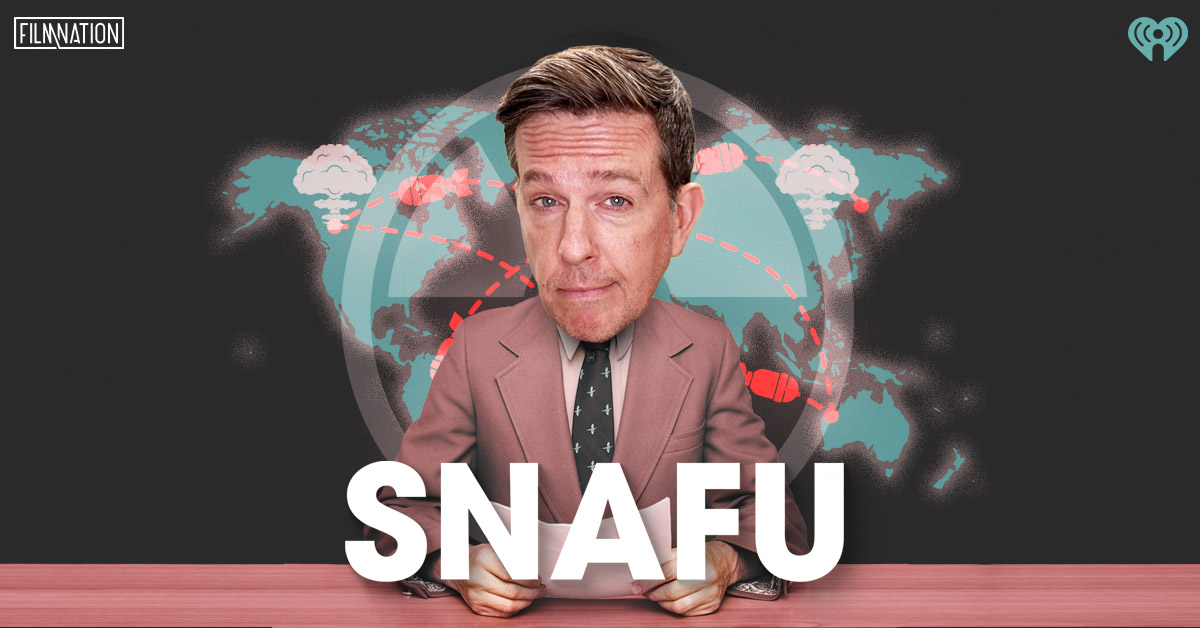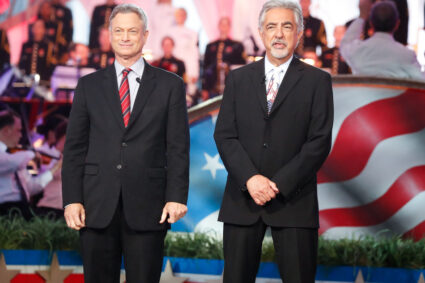
On a spring evening at the historic Sixth & I in Washington, DC, audiences gathered not just to attend a lecture or reading, but to laugh, reflect, and revel in one of the most delightful book events of the season. The occasion? Comedian, actor, and podcast host Ed Helms chatting about his new book, SNAFU: The Definitive Guide to History’s Greatest Screwups—a deeply entertaining dive into historical missteps that is as enlightening as it is laugh-out-loud funny.
The venue itself set the tone for the night, with Helms marveling at Sixth & I’s beauty and asking how long it had been there—only for an audience member to quickly respond, “Brand new,” prompting one of many laughs from both Ed and the audience. From that moment on, the evening felt less like a formal tour stop and more like an intimate night of storytelling with a witty friend.
In conversation with CNN Political Director David Chalian, Helms explored his lifelong fascination with history—an interest sparked during his childhood growing up in Atlanta, where curiosity and intellectual exploration were prized family values. His father, a self-proclaimed Civil War buff, played a key role in that early passion. But Helms made it clear: this isn’t about memorizing dates and battles. “History isn’t about timelines,” he said. “It’s storytelling, and about finding context.”
That philosophy lies at the heart of SNAFU, which evolved out of his hit podcast of the same name. While the podcast dedicates each season to a single historical disaster (with future plans to shift to episode-by-episode SNAFUs featuring guest interviews and appearances), the book takes a broader approach. It’s a curated collection of catastrophic blunders, ranging from military mishaps to cultural fads gone awry. Each chapter balances fact with wit, making the absurdity of these real-world events not just digestible, but insanely hilarious.
Among the standout stories Helms highlighted were the CIA’s failed “Project Iceworm” in Greenland, the bizarre tale of a mid-air collision involving a Chinese fighter jet, and a Beanie Baby mania chapter that felt ripped from a 90s fever dream. One of my particular favorites? A bizarre experiment involving a “cyborg kitty” that had the entire audience both horrified and hysterical.
Despite his clear love of history, Helms was quick to reject the “historian” label when Chalian asked if he considered himself one. “I’m a fan of history,” he insisted. “I’m a storyteller, not an academic.” His humility added warmth to the discussion, especially as he recounted the “existential crisis” he had at age ten over the threat of nuclear war—one of many personal anecdotes woven throughout SNAFU that elevate it beyond mere trivia.
As the conversation shifted to leadership, Chalian asked if Helms saw any patterns in the political figures he wrote about. Helms responded, half-serious, half-snarky: “The most surprising pattern is how these leaders get away with these bad decisions every time.” He even noted that there are a lot of “Dwights” in the book—a nod to his Office past that longtime fans enjoyed.
Speaking of The Office, Chalian touched on Helms’ time as a correspondent on The Daily Show, where Helms said he gained a new appreciation for storytelling and satire—skills that clearly translated into both the podcast and book.
The night was a reminder that history doesn’t have to be a dusty textbook or a stern lecture—it can be absurd, human, and hilariously relatable. Helms’s enthusiasm, humility, and sheer storytelling talent transformed what could’ve been a standard book talk into a vibrant, joyful exploration of humanity’s most epic missteps.
FINAL GRADE: A


